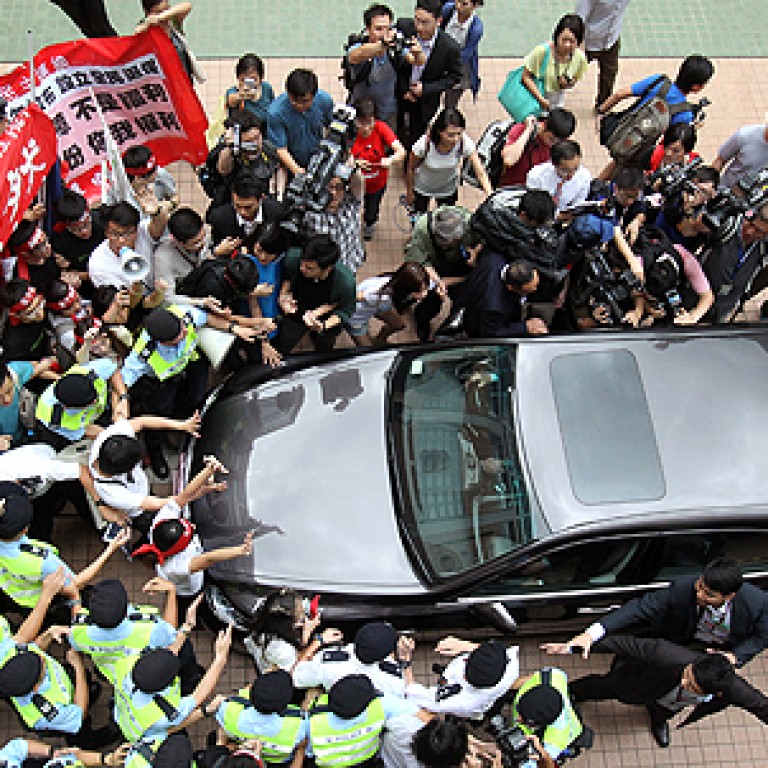
Hong Kong happiness index at lowest since 2003 amid government scandals
HKU index hits May low since 2003, as top officials find themselves in trouble and activists divide over this year's June 4 protest
An index tracking how happy Hongkongers are with the city and its government has fallen to its lowest May level since 2003 - the year in which seething anti-government sentiment led to a 500,000-strong protest march.
The Public Sentiment Index - compiled by the University of Hong Kong's public opinion programme to gauge the likelihood of collective action by the populace - fell last month to 72.9, the lowest since May 2003 when it was 72.1. In July that year, the index fell to its lowest, 63.8, in a month that saw the biggest protest since the handover.
A political commentator said sentiment in the latest study was dragged down by scandals involving top public figures. But with activists divided, the effect on next week's annual June 4 rally was uncertain.
The index comprises two parts: people's appraisal of the city's governance, and their appraisal of political, economic and social aspects. Various monthly polls by HKU are also factored into the index. The overall score ranges between 0 and 200, with 100 meaning normal.
"The reading for late May has slightly rebounded compared with early May," programme research manager Winnie Lee Wing-yi said.
She would not speculate on the reasons for the plunge. "Whether it will oscillate downwards or if it is a true rebound remains to be seen."

He said people were also confused by "extreme" views on both sides of the political divide. "In 2003, people were unhappy with the government but they trusted the pan-democrats. Now, they are left confused," he said.
Professor Ding Zilin, founder of the Tiananmen Mothers support group, criticised as "stupid" a slogan adopted by the Hong Kong Alliance in Support of Patriotic Democratic Movements in China: "Love the country and love the people."
Ding also alleged that Tsui Hon-kwong, who has just resigned from the alliance's standing committee, had damaged her integrity by saying she took pity on the Communist Party.
Autonomy activists led by Dr Horace Chin Wan-kan slammed the alliance for linking patriotism to the notion of a Hong Kong spirit. They called upon the public to boycott this year's vigil.
